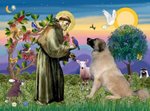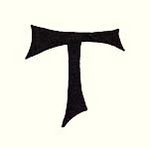

 The shelter was in the United Methodist Church of Citronelle. The shelter became the center of my world. We worked there, constantly. The crises were unpredictable other than we knew we would always have one. While there were four of us working the shelter we were never really alone.
The shelter was in the United Methodist Church of Citronelle. The shelter became the center of my world. We worked there, constantly. The crises were unpredictable other than we knew we would always have one. While there were four of us working the shelter we were never really alone.Rev. Kevin Krist was there everyday for hours. I thought often of his wife and kids, especially his wife. While he did what he was trained to do, care for the poor, hurting and vulnerable, his wife had the kids and the household to take care of by herself. The Rev. was aware of this and I think just knowing what his wife had to contend with was supportive to her.
Rev. Krist was a funny, caring, articulate man. He had radar for the hurting and he was a team player. It was a privilege to work with him.
While the shelter was housed in the Methodist Church all of the churches in the county helped out. They made all of our meals and they competed with one another. So, among all this suffering and loss we ate like royalty. While our supplies never arrived while I was there at least we never had to worry about food.
We had old folks, families, single adults and kids. We also had a number of folks who had lost contact with members of their family. This, besides dealing with death, was the hardest part of the job. A computer company donated computers and the local cable company gave the shelter free service. This was so the residents could go on line and search for their families. In the time I was there three different people made contact with family members. Each time was very emotional for the entire shelter.
Shelters are not supposed to allow pets. I know that was controversial during Katrina but I understand the reasoning. Think of the large shelters with thousands of people. Pets could easily contribute to injuries, the spread of tics, mites or depending of the animal the spread of illness. So, I do not believe it is a heartless rule.
Luckily, we got around it! We had a gentleman who lost everything he had in the world, except his two dogs. The Rev. decided that a site on the church property but not next to the church was no longer the shelter and he allowed the gentleman to live in his car there with his dogs. We feed him and his dogs and everybody was happy with this bending of the rules. Looking back I don’t know what we would have done had others heard about this and then started bringing their animals to the shelter.
Our hotel was five hours away, it felt like the other side of the world. So we did not use it. It is important that workers take their breaks, get days off and exhibit self-care. We were content with tiny breaks but it did take a toll on us.
Two of the workers took turns staying overnight in a bug invested motel, just to get ways from everything. I choose not to do that. I was a student in the Pastoral Counseling program at USF. I was able to escape by reading St. Bonaventure's, The Soul’s Journey into God. I actually had theological discussion with residents at
I did get a small “day off” of about three hours. Rev. Krist drove us over to the local Choctaw Reservation. The members of the tribe appeared to have Choctaw, African-American and Euro-American heritage. Culturally they appeared very distinct. Like every reservation I have been on, this one was poor. However, it had a great museum. Rev. Krist introduced us to the tribal minister who also told us some of the tribal history.
I was surprised to see a photo of Geronimo in the museum. I knew he was not a Choctaw, however, after his capture he was imprisoned on this reservation.
The Choctaws were one of the “Five Civilized Tribes”, they had worked hard to incorporate European technology. While the early Americans were impressed with their progress, they were more impressed with the land. And so the Choctaw also had a Trail of Tears. The Alabama Tribe is composed of descendants who hid and did not make the march or who returned. The tribe is recognized by the State of
We were very isolated. We could not leave the shelter for any extended time because the other staff members needed our help. There was not much to see in town. However, we did get visitors. Father John Coghlan for the Catholic St. Thomas Aquinas church visited everyday. He was an Irishman, complete with accent, who simply wanted to help with morale and pray with or for whoever needed it. I was able to attend his church for an hour and his congregants treated us like dignitaries.
Other churches also sent volunteers. Whenever a member of a
Many of the local folks were suspicious of the residents. However, many were also empathetic and supportive. My favorite night was when our teens played the locals in basketball, it was just fun.
The hardest part was hearing the details about death, loss and a future that seemed to distant to dream about.














No comments:
Post a Comment